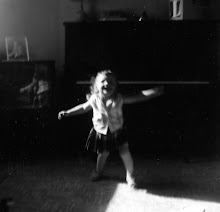Last night I went to see the documentary film An Inconvenient Truth, and came away feeling much the way I felt when I saw that awful movie in the mid-70s, but worse. It's hard to find words for how scary this documentary is. It's essentially a film of "the former next president of the United States" Al Gore giving a slide presentation on the climate crisis, as he insists on calling it, using a lot of charts and graphs. You wouldn't think such a film could keep you awake, let alone be riveting, but it does and it is. I never thought I'd hear a movie audience gasp at the sight of a line on a graph, but I did.
I also don't know where Gore's reputation for being wooden, geeky and pedantic comes from, because he comes across as engaging, funny and articulate. Quite apart from the despair one feels at the thought of losing our planet, one comes away from the movie thinking that but for those U.S. Supreme Court judges in 2000, this smart, thoughtful guy could have been the leader of the free world for the past six years instead of Bozo Bush. It's demoralizing to speculate, "what if."
And yet, one review criticizes Gore's record as Bill Clinton's vice-president, and claims he wasn't nearly as vigilant as he could have been on the environmental front during his tenure. Which may simply prove that ex-politicians are the only people who get to speak the truth.
Is this film the truth? Even the negative reviews I've read don't suggest his science isn't solid; RealClimate.org takes him to task on a few points, but agrees with most of what he says. And though the presentation is slick, the film is not nearly as manipulative as anything from the Michael Moore oeuvre. Of course, it can be seen as an attempt to get people to vote for Gore should he decide to run for president again (a Time.com reviewer said the film should be titled, "Elect me, or we'll all die"). (Oh, and then there's the fact that Gore's Apple Powerbook is on display in every other shot -- apparently he's on Apple's board.)
But the data is organized and displayed so that anybody can understand it, the photos of glaciers today and 20 years ago are starkly telling, and the story they tell is nothing short of devastating. Interspersed with the data are some clips designed to make us trust Gore and fear for the planet, like the computer-animated polar bear who can't find an ice floe to crawl onto in a warm sea.
Margaret Wente recently wrote in her Globe and Mail column, in her usual contrarian way, that the "polar bears are drowning" theory is a myth. She quoted a single biologist who said so, and nobody else. (This not long after she took Wendy Mesley to task, fairly enough, for calling on too few scientists and using too much anecdotal journalism in her "the environment is causing cancer" documentary on CBC TV.)
Is Gore trustworthy? David Remnick, editor of The New Yorker, A.O. Scott in The New York Times, and David Edelstein in New York magazine seem to think so. After the graphs that show carbon dioxide levels going literally off the charts, and temperatures climbing with them (not, as many skeptics claim, simply moving up and down as they have done since the earth was born), and the increasing number of violent storms, etc. etc., the most arresting figure Gore presents is that out of almost 1,000 peer-reviewed scientific articles that were surveyed in a meta-study, not a single one denied the existence of a global warming crisis. But a similar study of articles in the popular press revealed more than half suggested it might be just a theory, not a real crisis. Of course, I don't know how the 1,000 academic articles were chosen.
But if he's right, we're in seriously big trouble. As he did in his Vanity Fair article, Gore tries hard to point out that if we move from disbelief straight to despair, and are too paralyzed to act, we're toast -- he says it is within our power to do something, in his opinion. His faith in democracy is touching, given his career in politics. But his conclusion is stark: if we don't do something right now, within a very few years (perhaps 10) there will be catastrophic storms and flooding and drought that will change life on the planet in terrible ways and cause the deaths of millions.
Liam Lacey writes in The Globe and Mail:
Here is a man who was almost the American president, who declares that global warming is here and, unless checked, will lead to catastrophic results. If Al Gore is wrong, the argument demands a responsible and thorough refutation; if, on the whole, he is right, then we need to make changes, fast.
The problem is, how much longer can we go on saying "If he's right"? At what point do we say, we can't wait any longer? Who leads us to make the decision? We can only make it for ourselves, as individuals.
You can see a trailer of An Inconvenient Truth -- and learn more about what we can do (including a quiz to determine what your carbon-emissions impact is) -- here.








No comments:
Post a Comment